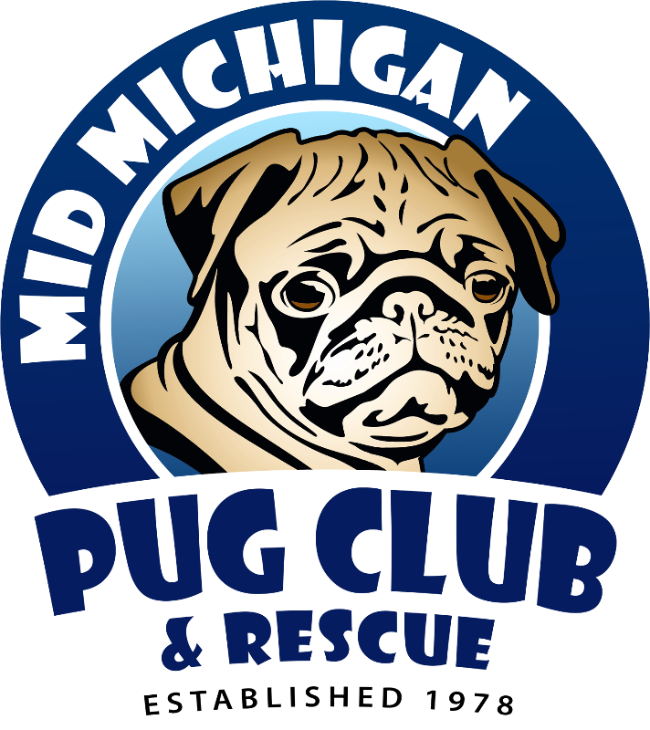FAQs
-
Where does a rescue Pug come from?
Pug come into our rescue for a variety of reasons. The most prominent reason a Pug is turned over to rescue is that the Pug was sold irresponsibly to its new family. The family was not educated with regard to the Pug's unique personality and stubbornness, and were unaware of the cost to properly care for a Pug. The Pug was not sold with the proper information regarding the necessity to spay/neuter, especially with a young male. This helps to prevent him from "marking", which usually begins during the hormone changes of puberty. Most of these boys adjust to happy "clean" lives with neutering and patient, consistent adoptive parents. Often the Pug was purchased without proper screening by the person who sold them the Pug. Pugs are also turned over due to death or illness of the owner, a lack of time to care for a pet, allergies and occasionally from a cruelty or abuse case. Because of the Pug's gentle, kind and adaptive nature, most Pugs adjust well in new adoptive homes.
-
Are Pugs hard to house train?
Pug puppies are no harder to house-train than most other breeds. The key to success is consistency, and patience. On average, a pug puppy who has been trained consistently will have few accidents by 5-6 months of age. Adult Pugs that did not learn when young, can be more challenging, as with any breed. It can take longer to train an adult, but with patience and perseverance it can be accomplished in most cases.
-
Do Pugs have a lot of eye problems?
Pugs have big beautiful globular eyes. They also have a flat face, leaving the eyes at higher risk of getting injured. For that reason, you should check your Pug's eyes daily - just by looking at them for any signs of injury or disease. If you notice your Pug squinting, excessive tearing, keeping one eye closed, or pawing at an eye you need to have a vet check them as soon as possible. It does not take long for a small scratch on the eye to ulcerate. Pug eyes seem to be more susceptible to developing Pigmentary Keratosis - a brown film looking growth on the eyes. This can be caused by a few different conditions such as "dry eye", eye lashes growing into the eye or scratching on the eye constantly, or continual exposure to excessive dust or dirt. For this reason, the Pug's eyes should be given a close look at whenever visiting the veterinarian.
-
Do Pugs shed?
Pugs do shed. If shedding is a problem for you, then you do not want a Pug. They can shed as much as a cat. Weekly brushing can decrease the amount of fur flying through the air in your home, but will not eliminate it.
-
Does the nose roll need special cleaning?
A Pug's nose roll tends to trap moisture, which can lead to yeast and bacterial infections if not cleaned regularly. The nose roll should be gently wiped once or twice a week using a damp towel or gauze pad.
-
Can Pugs be kept outdoors?
NO. Pugs are indoor pets. They do not tolerate hot or cold temperatures very well. On a nice day, they enjoy a romp in the yard, but should not be left outside unsupervised, or for extended periods of time.
-
Why do Pugs snore, snort and snuffle so much?
Pugs are one of several brachiocephalic, or flat faced breeds. Flat faces mean shortened airways, and longer palettes. This causes the noises a Pug makes - those charming little snorts and snuffles! Do Pugs bark much? Every Pug has their own personality, so some will bark more than others.
-
How long do Pugs usually live?
The average lifespan of a Pug is 12-15 years. Some have lived longer. Most pugs - although there are exceptions - are very accepting of other animals whether they be cats, dogs, birds, or reptiles. That is not to say that they should be placed in a home with any other animal. Some breeds of dogs are simply not a good match - such as herding dogs, or very large active breeds. Cats do not always like Pugs, and might cause permanent damage to their eyes with sharp claws - the same with birds and reptiles. Every pug is different. We learn as much as possible about the pugs in our rescue to ensure they are placed in the best home based on their personality, energy level and quirks.

Get Involved
Adopt a pug or volunteer.

